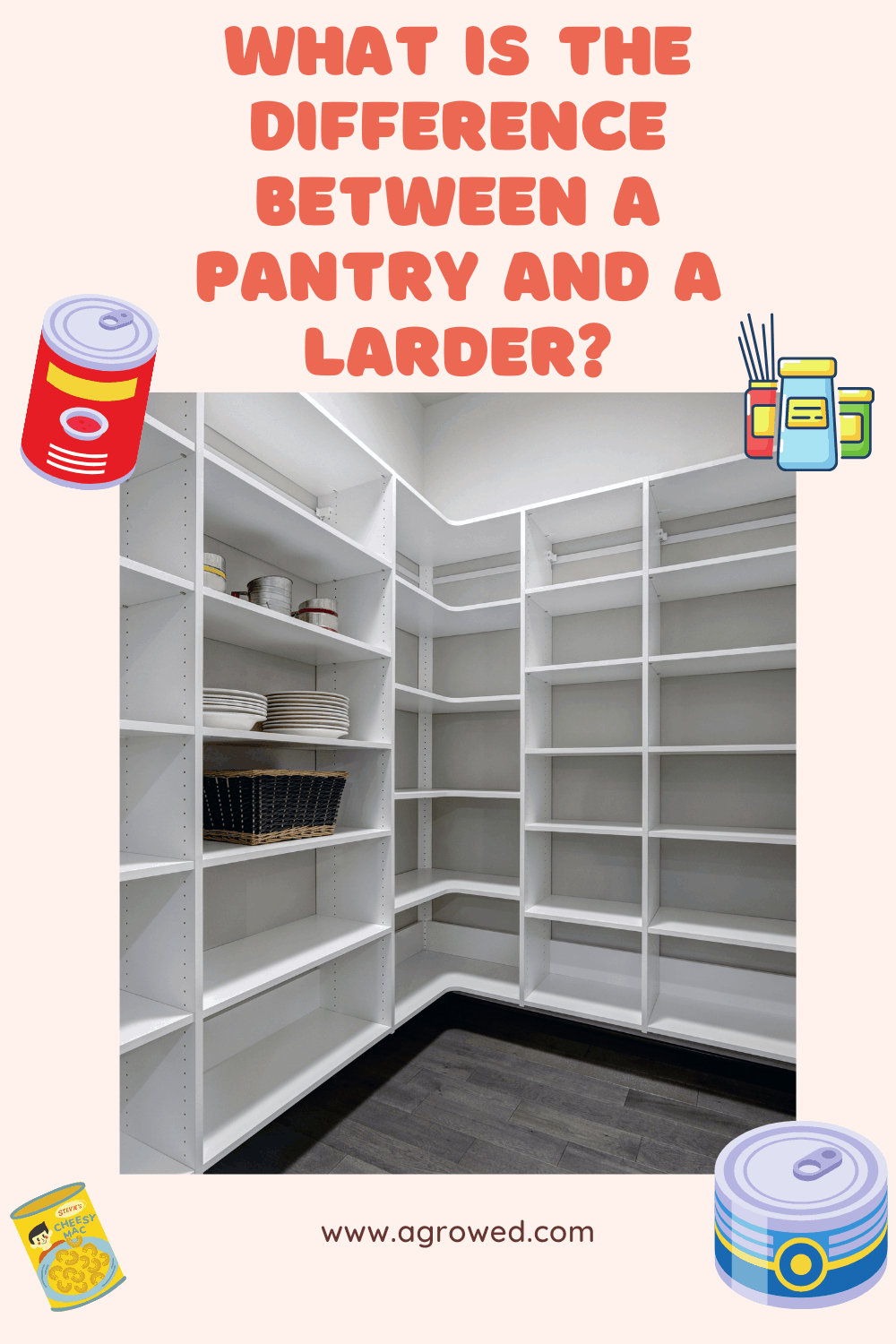I am a well-rounded expert with proficiency in several fields. My experience spans from being a dedicated chef and homemaker. As a passionate homesteader, I’ve honed my skills in sustainable living and animal care, ensuring a holistic approach to everything I undertake. Email me or Txt: (# removed due to spam, please email)
What is the difference between a pantry and a larder? If you are wondering, it actually matters because both words refer to different places in your kitchen. A larder is more of an old-fashioned word for refrigerator or wine cellar. A pantry, on the other hand, is where home cooks store all their dry goods like flour and sugar as well as canned goods such as beans and tomatoes.
Another way to look at it, a larder is where things that are going to expire quicker than things you would normally store in a pantry, which would last considerably longer.
Common things put in a pantry would be:
- – Oatmeal, old pasta boxes with dried-up noodles and spices.
- – Jarred olives, pickles, and relish in jars from the store.
- – Dried herbs
- – Flour, sugar, cocoa powder
- – Rice.
- – Oils and vinegar.
- – Canned goods such as beans and tomatoes.
- – Seasonings like salt, seasoned salt, black pepper, and crushed red pepper flakes; kitchen bouquet cubes; etc
Common things you would have put in a larder
These would generally be things that expire such as:
- Onions
- Eggs
- Milk
- Onions and garlic.
- Condiments like mustard and ketchup; mayonnaise.
- Salted butter sticks
- Cheese is typically kept in larder too, although sometimes they have their own space to age.
Meat would also hang in a larder because it was often colder than any room in the house before being cooked or smoked.
In today’s language, basically both the words pantry and larder mean the same thing. They’re both used to store food and can be used interchangeably.
Back in the day, people didn’t have ways to keep things cold with electricity, so they often had cold storage in their house, the larder. There’s almost no difference between the two today.



